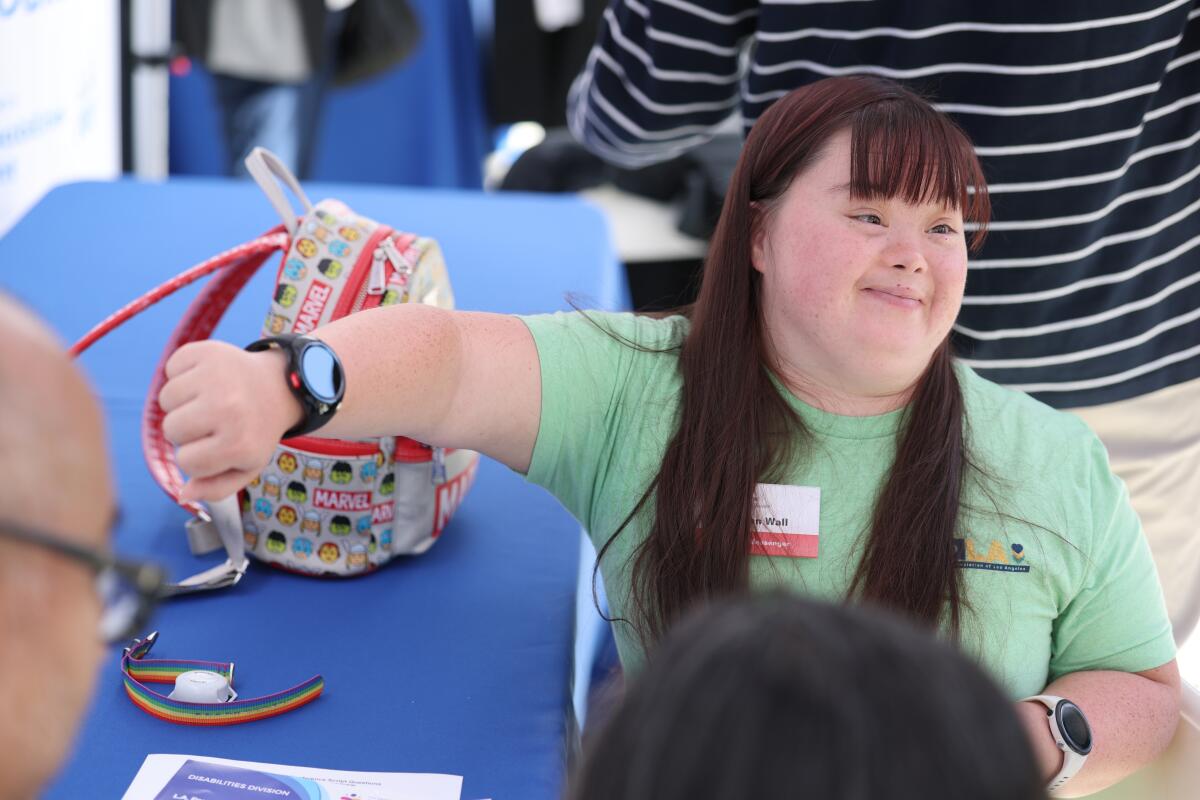California County Launches Smartwatch Program to Help Track Missing People with Dementia, Autism

Los Angeles County is turning to cutting-edge technology to help protect vulnerable individuals with cognitive conditions like Alzheimer’s, dementia, and autism—conditions that make them prone to wandering. The initiative comes years after the tragic disappearance and death of Nancy Paulikas, a Manhattan Beach woman with early-onset Alzheimer’s who went missing during a visit to the Los Angeles County Museum of Art in 2016.
Her husband, Kirk Moody, spent over two years searching for her before her remains were eventually discovered miles away in Sherman Oaks. “It took 26 months to find out we would not see her alive again,” he said during an event held on October 15 at Gloria Molina Grand Park in downtown Los Angeles, organized by the LA County Aging & Disabilities Department and L.A. Found—a program created to help locate missing individuals with cognitive impairments.
At the event, county officials announced a major technological upgrade to their existing efforts: the distribution of the Theora Care Smartwatch, a GPS-enabled wearable device designed to track individuals in real time. The smartwatch allows caregivers to set up geofencing zones—predefined safe areas—and receive immediate alerts if the wearer crosses those boundaries. It also features an SOS button that individuals can press if they are in distress or need help.
So far, the county has distributed a few dozen of these smartwatches at no cost, with the goal of getting them into the hands of more families caring for loved ones at risk of wandering. These new devices are intended to work in tandem with the already established Project Lifesaver program, which uses radio frequency-enabled bracelets to help first responders locate individuals more efficiently. Since its launch in 2018, L.A. Found has issued over 1,800 such bracelets.
Commander Geff Deedrick of the Los Angeles County Sheriff’s Department emphasized how transformative the new technology is for search and rescue operations. Unlike outdated methods relying on expansive street grids, GPS and radio frequency tracking can dramatically narrow down search areas to a single address—saving crucial time. “We’re now able to get to people faster, including individuals with autism who tend to head toward bodies of water. In many cases, this helps prevent drownings,” Deedrick said.
The need for these devices is substantial. In Los Angeles County alone, more than 190,000 older adults live with Alzheimer’s or dementia, and 1 in 22 children in California has been diagnosed with autism. These populations are at high risk for wandering, which can have life-threatening consequences.
Kate Movius, founder of Autism Interaction Solutions and a task force member for L.A. Found, noted that the mortality rate for missing persons with autism continues to climb. “About 91% of wandering-related deaths in people with autism are due to drowning,” she said. Movius recounted her own experience: her son, who has autism, once went missing and ended up hospitalized as a John Doe.
Stories from caregivers further highlighted the importance of this new initiative. Mary Brown, whose 27-year-old daughter Jordan Nichole Wall has Down syndrome, described the challenges of keeping track of her daughter, who has a habit of impulsively running off, often drawn to something that captures her attention. “She’s not running away from us,” said Brown. “It’s just her curious nature.”
Brown recounted a frightening experience at Santa Monica Beach when her daughter disappeared during a large family outing. She was found hours later, after sunset. “If we had this device back then, we would’ve located her so much faster,” Brown said, as Jordan proudly held up her wrist to display her new tracking smartwatch—earning a round of applause from those in attendance.
Janet Rivera shared a similar story. She cares for both her elderly mother with dementia and her adult son with cognitive disabilities. Her son, Kenny, is what she calls “a runner,” and his tendency to suddenly take off has long been a source of worry. Now, both her mother and son wear the new smartwatch. “I’m getting older—I can’t run like I used to,” Rivera said. “This isn’t just about tracking—it’s about peace of mind.”
With location data in hand, families and authorities can respond more quickly and with greater accuracy. In cases requiring law enforcement involvement, the LASD Mental Evaluation Team (MET) can step in with better situational awareness and sensitivity.
“This technology gives families hope and reassurance,” said LA County Supervisor Janice Hahn, who co-authored the 2018 motion that launched L.A. Found. “Every caregiver deserves the peace of mind that their loved one will be found if they go missing.”
By combining smart technology with community resources, Los Angeles County is hoping to prevent future tragedies and provide a vital lifeline to thousands of families caring for loved ones with cognitive challenges.

